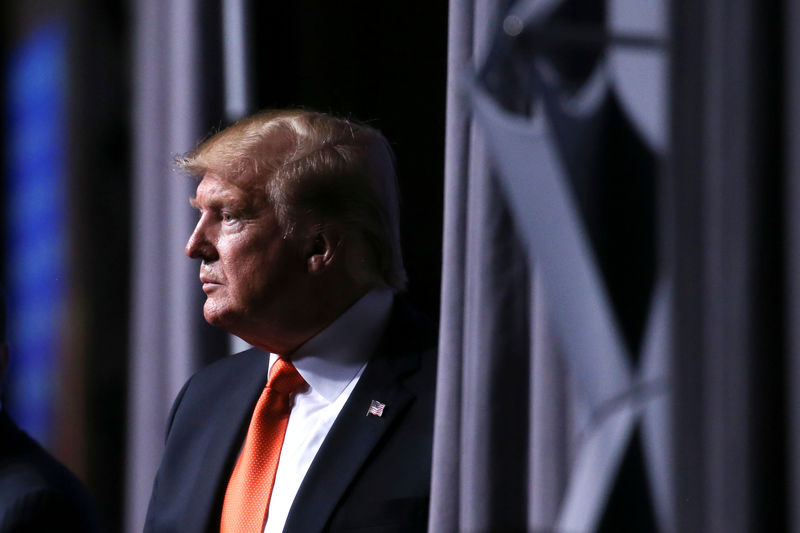By Makini Brice
WASHINGTON (Reuters) - U.S. President Donald Trump denied on Thursday that he had ordered then-White House counsel Don McGahn to fire Special Counsel Robert Mueller from the Russia investigation, moving to undermine McGahn's credibility ahead of a possible congressional testimony.
Trump's move appears to be part of an effort by the White House to push back on attempts by congressional Democrats to pursue investigations related to Mueller's probe into Russian election interference in 2016 and possible obstruction of justice by Trump.
"As has been incorrectly reported by the Fake News Media, I never told then White House Counsel Don McGahn to fire Robert Mueller, even though I had the legal right to do so. If I wanted to fire Mueller, I didn't need McGahn to do it, I could have done it myself," Trump wrote on Twitter.
A redacted version of Mueller's report released last week mentioned conversations in June 2017, when Trump called McGahn to tell him he should direct Deputy Attorney General Rod Rosenstein, who was overseeing the special counsel's probe, to remove Mueller because of conflicts of interest.
The report cited "McGahn's clear recollection" that the president directed him to tell Rosenstein that "Mueller has to go." McGahn did not carry out Trump's order, the report said.
Trump also tried unsuccessfully to get McGahn to dispute media reports that the president had attempted to fire Mueller, the report said.
Mueller's report uncovered numerous links between the Trump campaign and the Russian government, and described how Trump tried to impede the Russia investigation.
But it said there was not enough evidence to establish that the Trump campaign engaged in a criminal conspiracy with Moscow, and did not reach a conclusion on whether Trump committed the crime of obstruction of justice.
MCGAHN ATTACKS
A lawyer for McGahn declined to comment on Trump's tweet.
Trump lawyer Rudy Giuliani has repeatedly attacked McGahn's veracity since the report's release.
Giuliani has called the former White House counsel "hopelessly confused" and said his account may be "the product of an inaccurate recollection."
The Democratic chairman of the House of Representatives judiciary panel has issued a subpoena for McGahn to testify and provide documents to the committee.
But it is not clear whether the White House would try to stop him from testifying by claiming executive privilege, a legal doctrine allowing the president to withhold information about internal executive branch deliberations from other branches of government.
Trump has vowed to fight every subpoena from House Democrats probing his administration and has ordered officials not to obey legal requests for cooperation from the Democratic-led House.

In response, Democratic House Oversight Chairman Elijah Cummings has accused Trump of an "unprecedented, and growing pattern of obstruction."